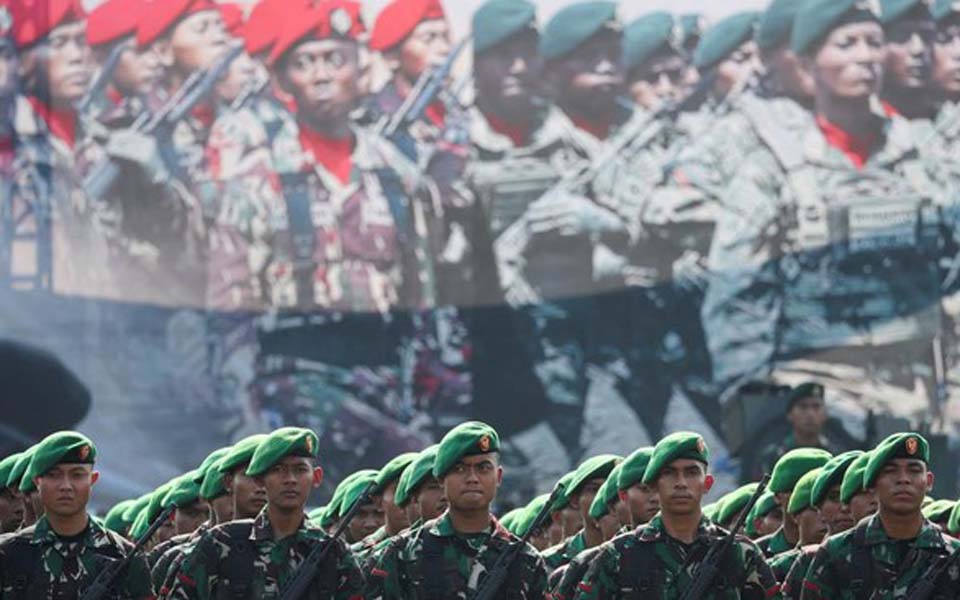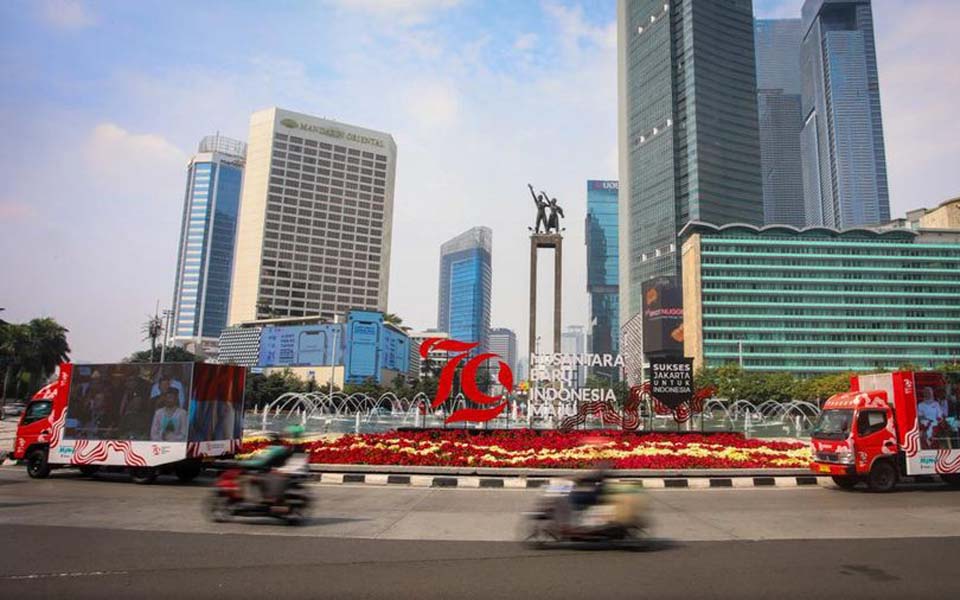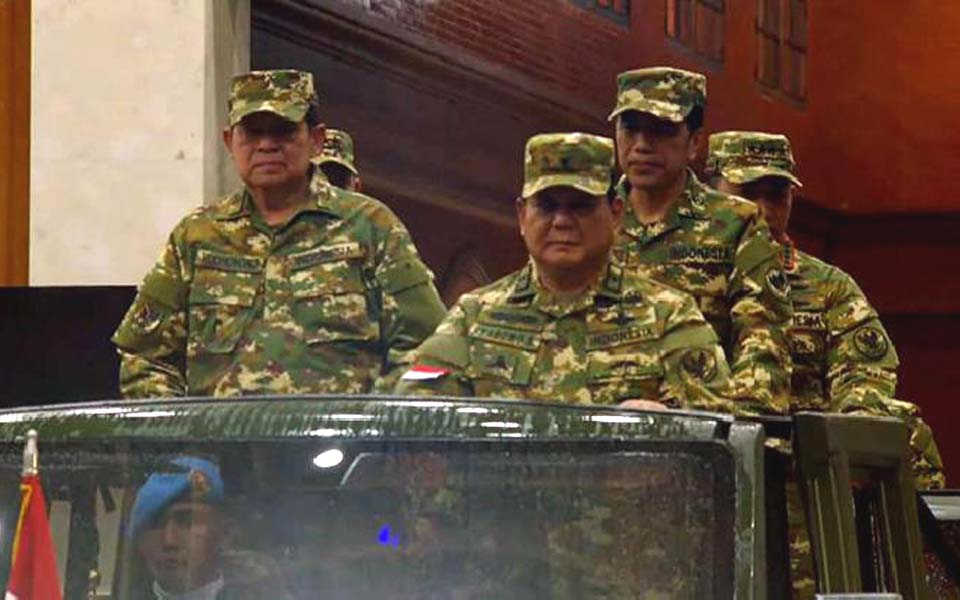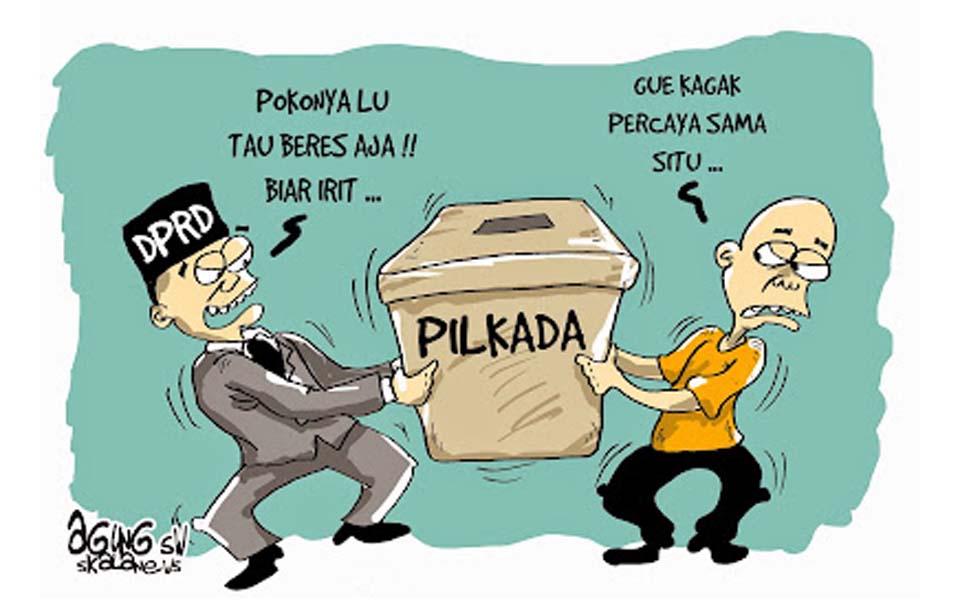Dimas Jarot Bayu – A recent survey by Concept Indonesia (Konsepindo) shows that only four political parties will gain seats in the national parliament in the 2019 general election (pemilu).
The head of the Indonesian Institute of Science’s (LIPI) Political Research Centre, Syamsudin Haris, predicts that the elections will become a mass grave for many political parties.
According to the survey, the four parties which will pass the parliamentary threshold of 4 percent of the vote to gain seats in the House of Representatives (DPR) are the ruling Indonesian Democratic Party of Struggle (PDI-P), the Greater Indonesia Movement Party (Gerindra), the Golkar Party and the National Awakening Party (PKB).
“The 2019 elections will be a mass grave for many political parties”, he said in Jakarta on Wednesday March 13.
This being the case, he estimates that that the other parties will not get through the elections, because according to respondents in the Konsepindo survey, their electability is less than 4 percent.
Based on the survey, the PDI-P has the highest electability level with 26 percent. In second position is Gerindra with an electability of 12.8 percent. This if followed by Golkar which will get 9.3 percent of the vote and the PKB with 6.2 percent.
Meanwhile there are three parties with an electability of around 3 percent, namely the Democrat Party, the National Mandate Party (PAN) and the National Democrats (Nasdem).
The survey found that the Democrat Party had an electability of 3.9 percent, PAN 3.8 percent and Nasdem 3.2 percent. Meanwhile the electability of the Islamic based Justice and Prosperity Party (PKS) and the United Development Party (PPP) stood at 2.8 percent and 2.2 percent respectively.
The electability of the Indonesia Unity Party (Perindo) and the People’s Conscience Party (Hanura) is only 1.2 percent. Meanwhile the other parties such the United Development Party (PBB), the Indonesia Reform Movement Party (Garuda), the Indonesian Solidarity Party (PSI), the Working Party, the Star Crescent Party (PBB) and the Indonesian Justice and Unity Party (PKPI) have an electability of less than 1 percent.
According to Haris, the large number of political parties in Indonesia has resulted in a tight competition for votes so it will not be surprising if many of them fail to survive the election.
In addition to this, said Haris, the electoral threshold for political parties in the 2019 legislative elections (pileg) is too high compared with the parliamentary threshold in the 2014 elections of only 3.5 percent.
The other reason is that not all of the parties will enjoy an electoral incentive from the presidential elections. Only the PDI-P and Gerindra will benefit from the coat tail affect because they are fielding presidential candidates.
“The simultaneous pemilu will not result in all of the parties enjoying an electoral incentive from the presidential candidates”, he said.
The PDI-P is fielding incumbent President Joko “Jokowi” Widodo and vice presidential running mate Ma’ruf Amin while Gerindra is fielding Prabowo Subianto and Sandiaga Uno.
Nevertheless, according to Konsepindo Director Veri Muhlis Arifuzzaman, there is still a chance that these parties will pass the parliamentary threshold. The number of undecided voters still stands at 26 percent and these parties could work on this group in the time remaining for the campaign.
Konsepindo surveyed 1,200 respondents on February 17-24 chosen by multistage random sampling. The margin of error was plus or minus 2.9 percent with a confidence level of 95 percent. Quality control was carried out on a 20 percent sample.
[Translated by James Balowski. The original title of the article was “LIPI Sebut Pemilu 2019 Jadi ‘Kuburan Massal’ Partai Politik”.]
Source: https://katadata.co.id/berita/2019/03/13/lipi-sebut-pemilu-2019-jadi-kuburan-massal-partai-politik















